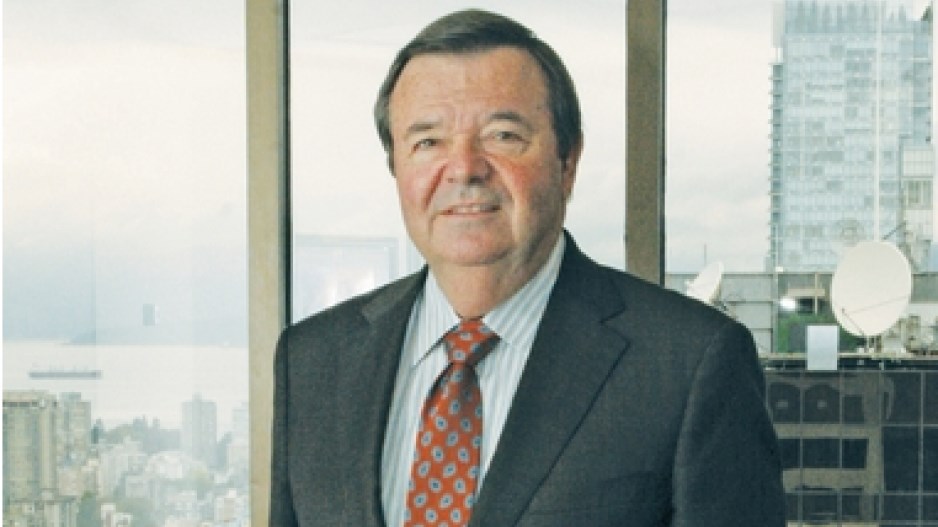When David Poole first came to Vancouver in 2006 as Scotiabank's senior vice-president for B.C. and the Yukon region, he quickly discovered how dynamic the Western Canadian market was.
"I was used to southern Ontario, London specifically," recalled Poole in a recent interview. "London was very stable. Not flashy, but stable. Whereas here, I had never seen a market where you could list a house and have multiple offers on it. I quickly realized there was tremendous opportunity for the bank in this environment and we have done quite well over the last eight years here."
While B.C.'s residential real estate market has gone through a correction in recent years, Poole remains confident that demand for homes in the province will remain stable for the foreseeable future. Business in Vancouver spoke with Poole, 63, on the eve of his retirement from his position at the bank on October 1.
Q&A
Q: B.C.'s housing market has seen tremendous appreciation and growth over the past decade. Is that growth sustainable?
A: A lot of people use the term "bubble," but the reality is Vancouver in particular is a world destination. It's always going to have people wanting to live here. We are favoured with immigrants and that drives home sales each year. A lot of other locations don't have that opportunity. I don't believe there is a bubble and the prices we see here are sustainable.
Q: Are you concerned that sales are well off their peak?
A: Personally, I'm not concerned at all, just because there is a certain stability factor. Over 40% of people own their home free and clear. You'd have to see prices come down a lot before you materially impact the economy. One of the things people sometimes lose sight of is whether or not a home is an investment or is a home a home. If you want to live somewhere and have a stable environment, you have a home. You can look at it as an investment, as part of your retirement from a planning perspective, but from a quality of life perspective, you should first think of it as a home.
Q: What about the issue of affordability?
A: It depends on what your cash flow is and income level is. But if you were to take the top 20% of sales out of the statistics, it really does reflect a different market. When you have a condo that sells for $40 million that will skew the numbers for the month.
Q: Is it a problem for local homebuyers that we are a "world class" city with foreigners wanting to buy property here?
A: When I moved here, I bought a condominium in the West End. I've since moved into a house, but I wanted to experience downtown living. There were four units on my floor, and I only saw one of the other owners in the four years I lived there. My perception when I first got here was that there was a lot of investor activity. But the reality is, it doesn't drive the market. It sustains the market.
Q: What about the concerns in Coal Harbour of "empty condos" in the neighbourhood?
A: There are a lot of people that are only here for a short time of the year. But to be candid with you, they still do transactional business. When we first opened a branch in Coal Harbour, we opened it with no teller service. It was strictly a sales centre [for investments and mortgages]. But people had foreign exchange requirements, and you need tellers for that, so we put the tellers in, and business was extremely good after that.
Q: What other markets in the Lower Mainland are key growth areas for the bank?
A: Surrey is just taking off. When they decided to put the downtown [in Whalley], it made a big difference. It looks very different from what it looked like five years ago, and five years from now it will look even more different. We're opening two new branches in the next two months. One is in Victoria and the other is just between Pitt Meadows and Maple Ridge. For the most part we are picking higher growth areas. We've opened 10 branches since I've been here, and the whole area between Pitt Meadows and Maple Ridge opened up because of the Golden Ears Bridge. That area is growing rapidly, so we have two branches in that high-growth area.
Q: What's your view of the potential in other areas of the province?
A: Believe me, the north is booming. Fort Nelson is booming. Fort St. John is really booming. It's a little diversified. They have beautiful farms up there in the Peace River valley, but the key activity is driven by maintenance of the pipelines, activity based around drilling and the mining taking place there. The region could boom even more with positive steps on Site C, liquefied natural gas or the pipelines. If any of those things fall into place, it will really set the economy on fire up there. •




